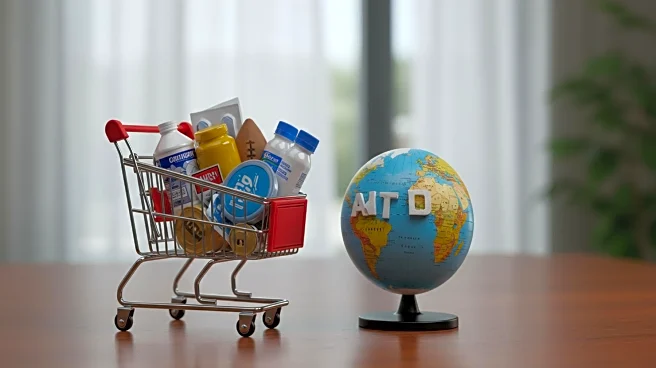What is the story about?
What's Happening?
Walmart has reported that President Trump's import tariffs are causing an increase in costs for the retail giant, leading to higher prices in its U.S. stores. According to CEO Doug McMillon, the company has been experiencing weekly cost increases when replenishing stock, a trend expected to continue throughout the year. In the past quarter, prices in Walmart's U.S. stores were on average one percent higher than the previous year. While Walmart is attempting to keep prices low by absorbing some of the tariff costs, it is also raising prices on products not directly affected by the tariffs to recoup losses.
Why It's Important?
The impact of President Trump's tariffs on Walmart highlights broader economic implications for U.S. consumers, particularly low- and middle-income households who are experiencing changes in purchasing behavior. As one of the largest retailers in the country, Walmart's pricing strategies can significantly affect consumer spending and inflation rates. The company's decision to absorb some costs while increasing others may influence market dynamics and consumer confidence. Economists have expressed skepticism about Trump's assertion that tariffs will not lead to higher consumer prices, suggesting potential challenges for economic policy and retail sectors.
What's Next?
Walmart has raised its forecast for sales growth this year, indicating potential adjustments in its business strategy to manage tariff impacts. The company may continue to explore ways to mitigate cost increases while maintaining competitive pricing. Stakeholders, including consumers and economists, will likely monitor Walmart's pricing strategies and their effects on the broader retail market. Additionally, ongoing discussions about tariff policies may influence future economic decisions and trade negotiations.














